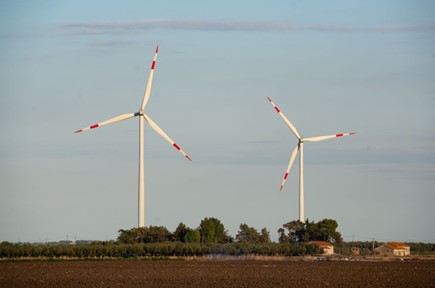
Global Push for Renewable Energy Must Include Responsible Mineral Mining
Since Greenpeace unveiled its pioneering Energy Revolution scenarios in 2005, the adoption of renewable energy has progressed at an incredible rate, surpassing expectations. However, leaders gathering at the UN General Assembly are called to be even more daring in their efforts.
What was once considered overly optimistic, Greenpeace's vision for a clean energy transition has proven to be not only achievable but perhaps even conservative given the current shift in global power generation. Yet, today's world leaders lack the necessary ambition to meet the pressing demands of our times.
The International Energy Agency (IEA) reported in June that under current policies, global renewable energy capacity will grow to 8,000 GW by 2030, falling short of the agreed target of 11,000 GW set at COP28 in Dubai. It's now time for political leaders to translate promises into action and expedite a fair transition away from fossil fuels. These goals will also be central to discussions at the Global Renewables Summit in New York, where calls to "Deliver Change Now" will be amplified.
With the submission deadline for updated Nationally Determined Contributions (NDCs) for 2035 approaching next February, it is crucial that these commitments feature strong policies aimed at scaling up renewable energy. Additionally, they should target a doubling of energy efficiency improvements by 2030.
The stakes are high. By 2050, climate change could result in 250,000 additional deaths per year due to malnutrition, heat stress, and diseases like malaria and diarrhea. Urgent climate action is no longer optional—it's essential.
The hottest years on record—2023, 2020, and 2016—have occurred since the signing of the Paris Agreement in 2015, which aimed to limit global warming to 1.5°C. The year 2024 is on course to surpass previous records. To mitigate the devastating effects of climate change, our renewable energy efforts must align with our stated goals and ambitions.
Rising Demand, Rising Risks
The IEA stresses the need for governments to close the "bridgeable" gap between current policies and what's necessary to hit the 2030 renewable energy targets. This demands not only a swift expansion of renewable energy but also improvements in energy efficiency and reductions in total energy consumption. Doing so could lessen the negative effects of mining for essential minerals required for clean energy technologies.
Solar PV and wind energy accounted for 95% of the growth in renewable energy in 2023, a year when demand for critical minerals surged. To stay on track for limiting warming to 1.5°C, the IEA estimates that $800 billion will need to be invested in critical mineral mining by 2040. However, this intensifies risks for Indigenous Peoples, local communities, and ecosystems, especially if mining operations are poorly managed.
Critical minerals present challenges that include unpredictable demand projections. Before increasing mining operations, we need to evaluate which environmental and social impacts can be minimized.
Transparent and Ethical Supply Chains
Measures to reduce overall energy and material usage—such as through efficiency and circular economy principles—should be combined with comprehensive societal and policy reforms to protect the planet. As proposed in Greenpeace's Sustainable Mobility Vision, improved public transportation could reduce the need for electric vehicles, which are major drivers of mineral demand, while increasing mobility access for all.
Minerals in short supply should be prioritized for essential energy transition technologies, and alternatives should be pursued where possible, like EV batteries that avoid metals like nickel and cobalt. Where mining is inevitable, it must adhere to strict boundaries, excluding sensitive regions like the deep sea. Moreover, Indigenous Peoples' rights must be respected, and affected communities must be involved in decision-making, ensuring equitable benefit-sharing.
Another crucial area of focus is supply chain governance. Ensuring human rights, worker safety, and transparency throughout the renewable energy supply chain remains a significant challenge, but one that must be tackled.
Ultimately, the solutions to these challenges are within reach if leaders show the courage and commitment to realize them. Imagine the progress we could make if political leaders fully backed an aggressive renewable energy transition. The climate crisis calls for bold and transformative action, and the only barrier is a lack of political will to act now.